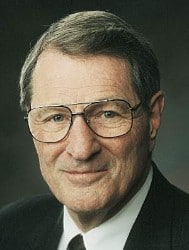
“Discouragement is not the absence of adequacy but that absence of courage.”

“Discouragement is not the absence of adequacy but that absence of courage.”

“Many of us live or work in an environment where humility is often misunderstood and considered a weakness. Not many corporations or institutions include humility as a value statement or a desired characteristic of their management. Yet as we learn about the workings of God, the power of a humble and submissive spirit becomes apparent. In the kingdom of God, greatness begins with humility and submissiveness. These companion virtues are the first critical steps to opening the doors to the blessings of God and the power of the priesthood. It matters not who we are or how lofty our credentials appear. Humility and submissiveness to the Lord, coupled with a grateful heart, are our strength and our hope.
| General Conference, 5 October 2003

“The Atonement was designed to do more than restore us to the ‘starting line’—more than just wipe the slate clean. [Its] crowning purpose [is] to endow us with power so that we might overcome each of our weaknesses and acquire the divine traits that would make us like God.”
| “How Can I Lead a More Saintly Life?” p. 89